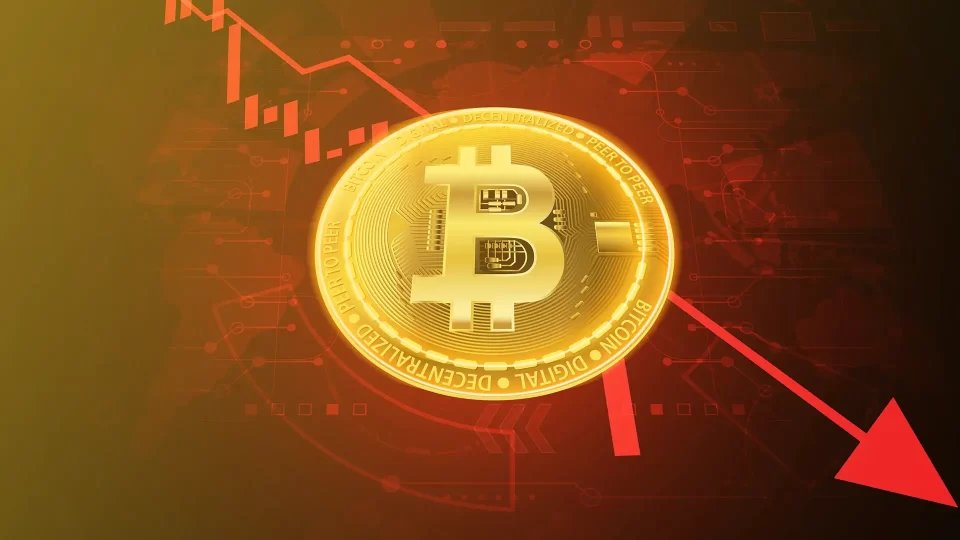Interpreting the Texas Bitcoin Reserve Bill: Appropriating $10 Million, Independent of the State Treasury System
Texas is the first state to establish an independent, publicly funded Bitcoin reserve fund, having currently allocated $10 million to purchase Bitcoin.
Original Article Title: "Decoding the Texas Bitcoin Reserve Bill: First Landing Execution, Allocating $10 Million, Derivatives Allowed"
Original Article Author: Weilin, PANews
Recently, Governor Greg Abbott of Texas signed the SB 21 bill, making Texas the third state in the U.S. to establish a state-level strategic Bitcoin reserve through legislation. While Arizona and New Hampshire took a lead on the bill, Texas became the first state to establish an independent Bitcoin reserve fund supported by public funds, rather than just authorization.
The Texas government has allocated $10 million to be used for purchasing Bitcoin during this biennium (i.e., a two-year budget). This fund will be managed by the Texas Comptroller and established outside of the state's traditional financial system.
Simultaneously, Governor Greg Abbott also signed the HB 4488 bill, ensuring that the Bitcoin reserve fund is legally protected from the state's periodic fund-sweep mechanism, meaning it cannot be diverted for general financial purposes. The bill also stipulates that even if no Bitcoin is purchased by next summer, the legal status of the reserve fund will remain.
SB 21 Bill Details: From Procurement to Custodial Standards, How Will the Bitcoin Reserve be Implemented?
The SB 21 bill recognizes that Bitcoin and other cryptocurrencies have the strategic potential to enhance Texas' financial resilience. They can serve as tools to combat inflation and economic volatility, establishing a strategic Bitcoin reserve for the public interest of enhancing financial security for state residents.
According to the bill, the Texas Strategic Bitcoin Reserve is established as a dedicated fund outside of the state finance, governed, managed, and operated by the Comptroller. The reserve includes: funds transferred or deposited into the reserve by legislation; income allocated to the reserve under general law; Bitcoin and other cryptocurrencies purchased or acquired for the reserve based on asset valuation requirements (including cryptocurrencies from blockchain forks and airdrops); investment returns, interest, or rewards generated by the reserve assets.
The bill specifies:
· Flexible Asset Utilization: The Comptroller may, based on a prudent person standard, engage in investment, exchange, sale, management, or holding activities in the current reserve context, terms, and allocation requirements. The legislature may appropriate funds for cryptocurrency investment and reserve management. The Comptroller may utilize Bitcoin or other cryptocurrencies in the reserve, or the net proceeds from their sale, to pay reasonable management fees.
· Reserve funds can be invested together with the State Treasury pool.
· Unless authorized by the General Appropriations Act or other laws, the Comptroller may not transfer reserve funds to the State Treasury.
· Eligible investment assets: Bitcoin or other cryptocurrencies purchased using reserve funds, with an average market value in the past 24 months not less than $500 billion. (Currently only Bitcoin meets the criteria)
On the execution side, the Comptroller can enter into contracts with one or more third-party entities, including: qualified custodians with cold wallet security technology; qualified liquidity providers to assist with asset purchase and management.
However, qualified liquidity providers must ensure: they hold federal or state licensure; audit financial statements issued by regulatory auditing firms; possess at least five years of cryptocurrency trading experience; have an office in Texas with a registered principal officer; certify to the Comptroller their compliance with the above conditions.
Furthermore, the bill proposes that if beneficial to the reserves, the Comptroller may use derivatives. SB 21 establishes a five-member Strategic Bitcoin Reserve Advisory Council composed of the Comptroller and 1 investment expert appointed by the Comptroller, along with 3 cryptocurrency experts, responsible for asset valuation recommendations and investment policy design.
From Precious Metals to Bitcoin: Exploring Financial Sovereignty in Policy Continuation
In an X Space event, Representative Giovanni Capriglione, involved in drafting the bill, stated that in his view, people's right to own, hold, and use any medium of exchange they mutually agree upon is unquestionable. "Whether it's cash, coins, or precious metals like gold and silver, the same is valid. About eight years ago, I was involved in pushing through and passing legislation to establish the first state-level precious metals depository in the U.S., namely the Texas Bullion Depository, which currently holds gold and silver.
"About a decade ago, I bought my first Bitcoin, and since then, I have been following the Bitcoin space. This is mainly because Bitcoin allows individuals to control their financial power without federal regulatory intervention," he said.
When asked how he views the relationship between Bitcoin and precious metals, as many Bitcoin supporters also appreciate the value of gold, he said that the Strategic Bitcoin Reserve is not meant to compete with our gold depository; they are complementary in function. They both can provide a scarce, valuable resource transferable between individuals and are effective means to combat inflation.

Bitcoin Strategic Reserve "Local Lab," Custodial Institution to Open Tender
In response to Trump's Bitcoin Strategic Reserve federal policy, various state-level BTC reserve bills in the United States are spreading and undergoing accelerated deliberation. On June 25, the state of Arizona passed the "Bitcoin Reserve" bill HB 2324. This bill establishes a reserve fund for assets acquired through criminal asset forfeiture. If signed by Governor Hobbs, this will be the state's second passed reserve bill.
Texas Representative Giovanni mentioned earlier stated that the White House has issued an executive order regarding the Bitcoin Strategic Reserve, but state governments seem to be ahead. As a 13-year state legislator, he believes that state governments should lead. The U.S. federal system allows states to serve as "policy laboratories" to test new policies more quickly and closer to public opinion. He introduced that from the beginning of the year until now, Congress has only passed about 18 laws, while Texas has passed about 1200 during the same period. Local efficiency is evidently higher, and responses are faster.
Zack Shapiro, a lawyer at the Bitcoin Policy Institute, stated that they have conducted in-depth research on the definition, function, and necessity of the "Strategic Bitcoin Reserve (SBR)." In comparison to the federal government, states face more financial constraints: the federal government can issue bonds, possess the global reserve currency, the U.S. dollar, and can print money, but states do not have these powers. Yet, states also bear long-term responsibilities such as pensions, infrastructure, and have to endure the pressure of currency devaluation. Therefore, the core significance of the SBR is to preserve public funds, combat inflation, and ensure that state governments can fulfill their obligations in the future.
Furthermore, he believes that there is a significant disparity in the financial structures of various states; some states have large investment accounts, some hope to integrate Bitcoin into existing portfolios, or explore more cutting-edge financial instruments, such as "Bitcoin Municipal Bonds (BitBonds)," and provide investors with tax-free Bitcoin returns.
"A few years ago, I discussed with legislators how to incorporate Bitcoin into Texas's balance sheet. Initially, we thought of using a charitable trust format, with the State Comptroller as the beneficiary, but there were still political difficulties. Then, last November, the political environment changed, Bitcoin matured, and received strong support from Governor Greg Abbott, the Lieutenant Governor, and the Speaker of the House. The bill was finally submitted, undergoing some modifications during the process."
He added that this $10 million expenditure in Texas only accounts for 0.00004% of the Texas annual budget, which is quite small and can be seen as a "trial." Now, the most crucial thing is to ensure that the State Comptroller's Office and the Texas Treasury Safekeeping Trust Company (TTSTC) have sufficient capabilities to collaborate with qualified custodians to ensure secure custody of reserves, compliance audits, and other processes.
Texas Blockchain Council Chairman Lee Bratcher also added, "We hold monthly meetings with companies interested in responding to the Texas Treasury Safekeeping Trust Company (TTSTC) RFP. The TTSTC is a quasi-governmental but privately held entity closely tied to the Comptroller's office. We are assisting these crypto firms in connecting with them, showcasing their products and services, and will subsequently conduct an open and transparent procurement process. The bill authorizes the Comptroller to use derivatives to get Bitcoin exposure. We hope they don't just buy an ETF but custody the physical Bitcoin directly and hold the private keys."
According to him, the SB 21 bill sets detailed conditions for "liquidity providers," such as being headquartered in Texas, operating for over 5 years, etc., but the definition of a "qualified custodian" is more flexible, possibly to broaden the competitive landscape. Institutions like Coinbase, Fidelity, Anchorage, Unchained, Onramp, among others, offer different custody solutions. The Comptroller's office and TTSTC will need a learning curve to evaluate various proposals.
Disclaimer: The content of this article solely reflects the author's opinion and does not represent the platform in any capacity. This article is not intended to serve as a reference for making investment decisions.
You may also like
Ripple co-founder keeps ‘cashing out’ at the highs: Will it hurt XRP price?
These key support levels can help Bitcoin avoid a ‘bear flag’ crash to $88K
Bitcoin Could See One Last Drop Before the Bull Run Resumes

Must Public Chains Embrace the Meme Trend?
The experience of Solana teaches us that "governments" should not direct the development of "enterprises."

